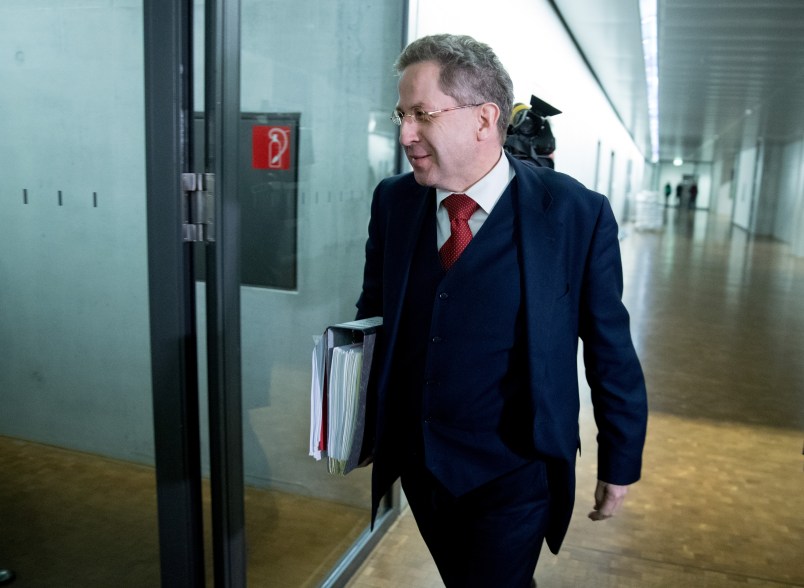BERLIN (AP) — Russia is trying to destabilize German society with propaganda and cyberattacks ahead of the country’s general election, Germany’s domestic intelligence agency said Thursday.
The warning was the bluntest public claim yet from Germany’s BfV agency about Moscow’s alleged campaign of disinformation and hacking targeting Europe’s biggest economy.
“There is growing evidence of attempts to influence the federal election next year,” said the BfV’s head, Hans-Georg Maassen, citing “increasingly aggressive cyberespionage” against political entities in Germany.
Russia has been blamed for the hacking and release of Democratic National Committee emails before the U.S. presidential election. But Moscow has strongly denied involvement in orchestrating cyberattacks on foreign soil and hit back with allegations of its own against the West.
Dmitry Peskov, spokesman for Russian President Vladimir Putin, said last month: “Believe me, we’re expecting cyberattacks during election campaigns, every election campaign in Russia. These cyberattacks also happen, and believe me, there are also people behind those tens of thousands of cyberattacks who work from Germany just like other European countries.”
Maassen, the BfV chief, expressed particular concern that voters’ increasing use of social media could make them more vulnerable to disinformation.
“We are worried that echo chambers are being created there,” he said, adding that “automated opinion-forming” with bots could be used to spread fake news.
Media outlets controlled by the Russian government and pro-Russian blogs in Germany regularly report on crimes committed by migrants in Germany, linking the incidents to Chancellor Angela Merkel’s decision to allow hundreds of thousands of refugees into the country last year.
German politicians have been the targets of recent hacking attacks, which Maassen said could have been attempts to gather information that could be used to discredit them.
“We expect a further increase in cyberattacks in the run-up to the elections,” he said.
Germany has not yet set a date for its national election in 2017, but it’s expected in September.
___
Follow Frank Jordans on Twitter at http://www.twitter.com/wirereporter
Copyright 2016 The Associated Press. All rights reserved. This material may not be published, broadcast, rewritten or redistributed.







surprise, surprise . . . . .not
What the heck does the BfV think they are doing? You can’t announce something like this right before an election! This isn’t something vital for voters to know about like vague accusations about possible emails on the spouse of an aide of one of the candidates computers. At least that’s how I think these things work from what the FBI has told us.
@RealDonaldTrump. Believe me, not true. Crooked Germans are hysterical. Putin says nice things about me.
So who is surprised about this?
Putin is destroying NATO. That’s what stands between him and his ambitions.
Merkel would do better to fault herself for wrecking Germany with a wide-open migration policy than blame Russia.